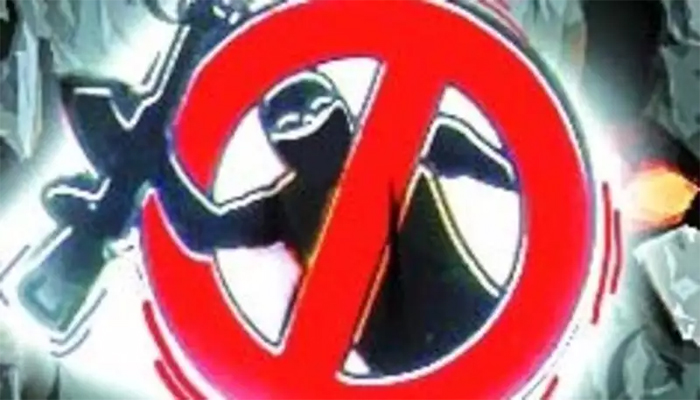TRENDING TAGS :
Controversial Gujarat anti-terror law gets President's nod
Substitute the word “may” for “shall” after the words Special Court occurring in clause 20(2) and bring the proviso in line with the proviso to Section 43 D (2) of the Unlawful Activities (Prevention) Act(Amendment), 2008, - Clause 20 (2) deals with the extension of the detention period.
Ahmedabad: President Ram Nath Kovind has given his assent to 'the Gujarat Control of Terrorism and Organised Crime (GCTOC) Bill', a controversial anti-terror legislation passed by the BJP-ruled state in March 2015.
One of the key features of the new Act is intercepted telephonic conversations would now be considered as a legitimate evidence.
ALSO READ: Chirag Paswan elected as LJP president
The announcement on the Presidential assent was made by Gujarat Minister of State for Home, Pradeepsinh Jadeja, in Gandhinagar on Tuesday.
The bill, earlier named as the Gujarat Control of Organised Crime (GUJCOC) Bill, had failed to get the presidential nod thrice since 2004 when Prime Minister Narendra Modi was the chief minister of the state.
In 2015, the Gujarat government re-introduced the bill by renaming it as the GCTOC but retained the controversial provisions like empowering the police to tap telephonic conversations and submit them in court as evidence.
ALSO READ: Bengal to implement revised UGC pay scale for teachers in
Jadeja said the provisions of the bill will prove crucial in dealing with terrorism and organised crimes such as contract killing, ponzi schemes, narcotics trade and extortion rackets.
"The dream of PM Modi was finally fulfilled today," he said.
"One of the key features of this bill is that the intercepted telephonic conversations would now be considered as legitimate evidence. This bill also provides for creation of a special court as well as appointment of special public prosecutors. We can now attach properties acquired through organised crimes. We can also cancel transfer of properties..," said Jadeja.
Other provisions of the act are admissibility of confession made before a police officer as evidence.
What is Gujarat anti-terror law?
The Gujarat Control of Organised Crime Act (GUJCOCA) is a controversial anti-terrorism legislation passed by the state legislature of Gujarat, India, in April 2003. It is awaiting Presidential approval.
ALSO READ: It’s so hard to shoot here: Priyanka Chopra Jonas on Delhi pollution
The bill was drawn on the lines of the Maharashtra Control of Organised Crime Act (for Maharashtra) and Karnataka Control of Organised Crime Act (for Karnataka). It was then sent to the office of the President of India for assent.
The bill was returned to the state legislature suggesting certain amendments. In June 2004, it was passed again by the state legislature after deleting the provisions relating to interception of communication as suggested by the then President, Dr. A P J Kalam and sent back for approval.
ALSO READ: High time practice of ‘ghoonghat’ is eradicated: Rajasthan CM
The bill was sent back to the state in December 2008 with suggestions of further amendments, but the President's office recalled the file back shortly in January 2009 saying it wanted to have another look. In June 2009 the bill was returned to the state with recommendations to make following amendments to 3 clauses.
-Delete Clause 16 - Clause 16 relates to the confession made before a police officer being admissible in court.
-Substitute the word “may” for “shall” after the words Special Court occurring in clause 20(2) and bring the proviso in line with the proviso to Section 43 D (2) of the Unlawful Activities (Prevention) Act(Amendment), 2008, - Clause 20 (2) deals with the extension of the detention period.
-Amend Clause 20(4) to bring it in conformity with Section 43 D (5) of the UAP (Amendment) Act - Clause 20 (4) deals with the powers of the court to grant bail.
-In July 2009, the bill was re-introduced in the state legislature without the changes suggested by the President and passed.



